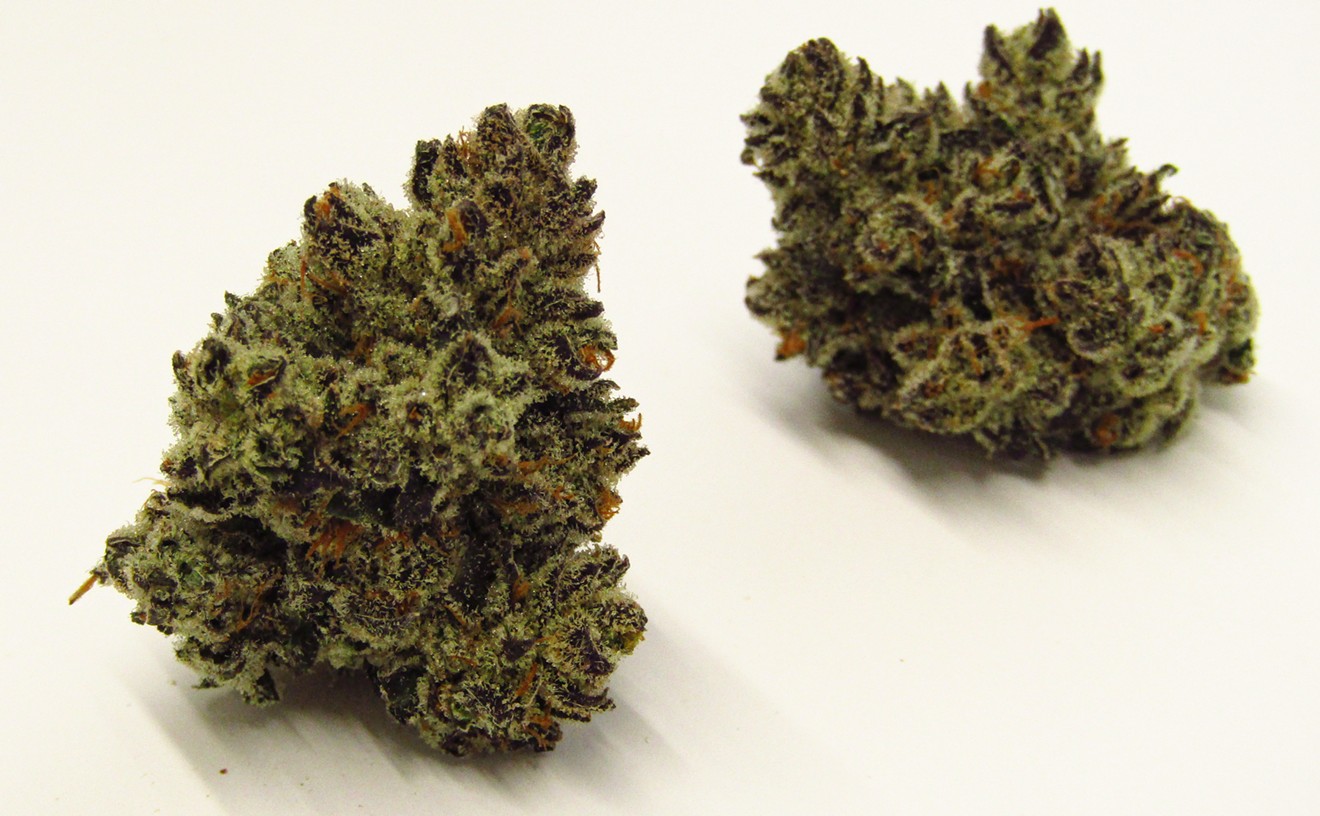A lawsuit filed against Governor Jared Polis and three state agencies over a new medical marijuana law has been dismissed by Denver District Court, but an appeal is expected.
Twenty-year-old medical marijuana patient Benjamin Wann had sued Polis, the Colorado Marijuana Enforcement Division and the departments of Revenue and Public Health and Environment nearly a year ago over House Bill 21-1317. That bill, passed last year by the Colorado Legislature and signed into law by Polis, took effect on January 1; it created several new restrictions for registered medical marijuana patients, doctors and concentrated THC products.
Two licensed doctors in Colorado eventually joined Wann's lawsuit, which claimed that HB 1317 violated the state constitution as well as doctor and patient rights. But on May 16, Denver District Court Judge Alex Myers granted the state's request to dismiss the case.
The lawsuit argued that the new law conflicts with the constitutional amendment that Colorado voters approved in 2000 legalizing medical marijuana, by forcing doctors to include dosages and consumption methods on medical marijuana recommendations. According to Alex Buscher, Wann's attorney, forcing doctors to include that specific information turns the recommendation into a prescription, and that conflicts with federal law and Drug Enforcement Administration rules.
Since HB 1317 was implemented, a handful of medical marijuana physicians have resigned or left their Colorado practices. However, the lawsuit provided "no facts demonstrating a credible threat" of federal prosecution or discipline toward doctors who prescribed medical marijuana, according to Myers. He also disagreed with the assessment that Colorado doctors are now filling out prescriptions for marijuana.
"Although physicians are required to provide more specific information in their recommendation, some of which is akin to that which is required to fill out a prescription, the recommendation is not an order for medical marijuana. Instead, the new requirements formalize a recommendation that the benefits of consuming marijuana would likely outweigh the harms and provide the patient with the information they may need to be fully informed regarding the patient’s choice to use medical marijuana for treatment of their debilitating medical condition — including the THC potency, form of cannabis, daily dose limitations, and instructions for use," Myers wrote in his decision.
The lawsuit had also argued that HB 1317's data collection on medical marijuana sales violates patients' rights to privacy. But according to Myers, "there does not appear to be any credible threat" from the federal government for patients who are part of Colorado's marijuana tracking system, since they are already part of a similar state registration system with CDPHE.
Wann, who attained his medical marijuana card as a child suffering from a rare genetic mutation associated with epilepsy, was grandfathered into a previous set of rules regarding doctor approval of his use of medical marijuana. Because of that, Wann couldn't prove that he was directly harmed by the new law as a medical marijuana patient, Myers said.
Buscher has been approached about filing a new lawsuit, but says he is currently focused on Wann's case. "Ultimately, we disagree with the court's assessment of the case and will be appealing the order," he adds.
During the 2021 session of the Colorado Legislature, medical marijuana access and commercial THC potency were hot topics, targeted by lobbies representing parents, public educators and health-care representatives. Colorado health professionals declared a state of emergency in youth mental health that year, naming marijuana as a contributing factor, while CDPHE data showed that the use of extracted marijuana products had more than doubled among teenagers from 2015 to 2019.
Commercial marijuana concentrates can consist of 60 to upwards of 90 percent THC, and are generally vaporized or inhaled over high heat. Citing anecdotal evidence, proponents of HB 1317 suggested that teenage medical marijuana patients were illegally supplying children with extracted THC products from the medical market.
Passed overwhelmingly by the legislature in under a month and signed into law by Polis weeks later, HB 1317 required that doctors recommending medical marijuana be limited to doing so within their respective scopes of practice; they must also offer a THC dosage amount and method of consumption with medical marijuana recommendations and order more medical and mental health reviews for prospective patients. The new law also established expanded tracking on patient purchases, restricted the daily purchase limit of medical marijuana concentrate purchases from 40 grams to 8 (2 grams for patients under 21), and enacted tighter packaging and labeling guidelines for both medical and recreational marijuana concentrate products.
In the first three months of 2022, after the new law went into effect, the DOR reported that medical marijuana sales had hit their lowest point since the state began tracking them in 2014.
[
{
"name": "Air - MediumRectangle - Inline Content - Mobile Display Size",
"component": "12017618",
"insertPoint": "2",
"requiredCountToDisplay": "2",
"watchElement": ".fdn-content-body",
"astAdList": [
{
"adType": "rectangle",
"displayTargets": "mobile"
}
]
},{
"name": "Editor Picks",
"component": "17242653",
"insertPoint": "4",
"requiredCountToDisplay": "1",
"watchElement": ".fdn-content-body",
"astAdList": [
{
"adType": "rectangle",
"displayTargets": "desktop|tablet"
},{
"adType": "rectangle",
"displayTargets": "desktop|tablet|mobile"
}
]
},{
"name": "Inline Links",
"component": "18838239",
"insertPoint": "8th",
"startingPoint": 8,
"requiredCountToDisplay": "7",
"maxInsertions": 25
},{
"name": "Air - MediumRectangle - Combo - Inline Content",
"component": "17261320",
"insertPoint": "8th",
"startingPoint": 8,
"requiredCountToDisplay": "7",
"maxInsertions": 25,
"watchElement": ".fdn-content-body",
"astAdList": [
{
"adType": "rectangle",
"displayTargets": "desktop|tablet"
},{
"adType": "rectangle",
"displayTargets": "desktop|tablet|mobile"
}
]
},{
"name": "Inline Links",
"component": "18838239",
"insertPoint": "8th",
"startingPoint": 12,
"requiredCountToDisplay": "11",
"maxInsertions": 25
},{
"name": "Air - Leaderboard Tower - Combo - Inline Content",
"component": "17261321",
"insertPoint": "8th",
"startingPoint": 12,
"requiredCountToDisplay": "11",
"maxInsertions": 25,
"watchElement": ".fdn-content-body",
"astAdList": [
{
"adType": "leaderboardInlineContent",
"displayTargets": "desktop|tablet"
},{
"adType": "tower",
"displayTargets": "mobile"
}
]
}
]












